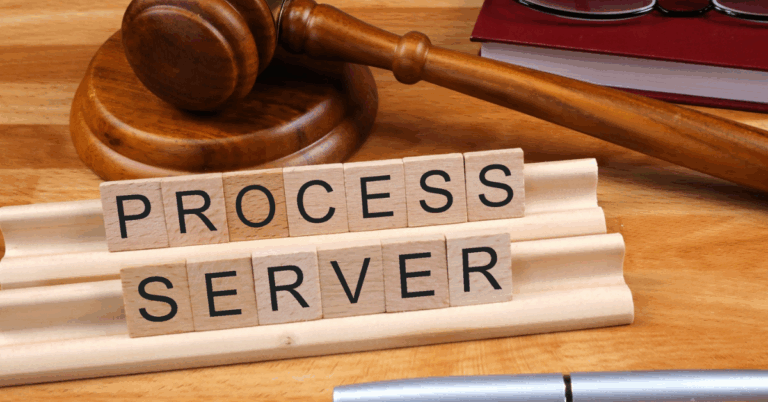Comprehensive Guide to Apostille Service Connecticut: Everything You Need to Know
If you are looking to authenticate your documents for international use, an Apostille service is a crucial step. This guide will cover everything about Apostille Service Connecticut, including what an apostille is, why you need it, the process in Connecticut, and answers to frequently asked questions.
What is an Apostille?
An apostille is a certificate that authenticates the origin of a public document. It is used for international legal matters and is recognized by countries that are part of the Hague Apostille Convention. This certification ensures that a document issued in one country will be recognized as valid in another.
Why Do You Need Apostille Service in Connecticut?
Many individuals and businesses in Connecticut require apostille services for various reasons, such as:
-
Educational purposes: Students planning to study abroad often need diplomas or transcripts apostilled.
-
Business and commercial transactions: Companies engaging in international trade may need to authenticate contracts or certificates.
-
Personal documents: Marriage certificates, birth certificates, powers of attorney, and affidavits might need an apostille for use overseas.
-
Immigration and visa applications: Governments frequently require apostilled documents for verifying personal status and identity.
Without apostille certification, documents may be rejected by foreign authorities, causing delays or legal complications.
Understanding Apostille Service in Connecticut
Connecticut, like all U.S. states, follows a standardized process governed by the Hague Convention. The Connecticut Secretary of the State is the designated authority responsible for issuing apostilles on documents originating in Connecticut.
Types of Documents Eligible for Apostille in Connecticut
Some common types of documents that can be apostilled include:
-
Birth Certificates
-
Marriage Certificates
-
Divorce Decrees
-
Death Certificates
-
Powers of Attorney
-
Diplomas and Transcripts
-
Court Documents
-
Business Certificates and Licenses
Step-by-Step Process for Apostille Service in Connecticut
Navigating the apostille process on your own can be time-consuming and confusing. Here’s a simplified breakdown of the steps involved in getting an apostille in Connecticut:
Step 1: Obtain the Original Document
Ensure you have the original document or a certified copy issued by a Connecticut authority. The apostille can only be attached to original or certified copies, not photocopies.
Step 2: Notarization (If Required)
Some documents may require notarization before they can be apostilled. For instance, affidavits or powers of attorney usually need to be notarized by a Connecticut notary public.
Step 3: Submit Documents to the Connecticut Secretary of State
Send or bring the notarized or certified document to the Office of the Secretary of State in Connecticut. You will need to fill out an apostille request form and pay the applicable fee.
Step 4: Apostille Issuance
The Secretary of State’s office will verify the document and affix the apostille certificate, confirming the authenticity of the signature and seal.
Step 5: Receive Apostilled Document
Once processed, the apostilled document will be returned to you, ready for use in the foreign country.
How Long Does the Apostille Process Take in Connecticut?
The processing time can vary depending on the volume of requests and whether you submit in person or by mail. Typically:
-
In-person requests: 1 to 3 business days
-
Mail requests: 5 to 10 business days, depending on mailing times and workload
Using a professional apostille service can expedite the process by handling all the paperwork and submission for you.
Why Use a Professional Apostille Service in Connecticut?
Although you can apply for an apostille directly through the Secretary of State, many choose to use specialized apostille service providers because:
-
Expertise: They understand the detailed requirements and can ensure the documents are properly prepared.
-
Convenience: They handle all submissions, follow-ups, and communication with government offices.
-
Speed: Professional services often have faster turnaround times due to established relationships and streamlined processes.
-
Avoid Errors: They reduce the risk of rejected applications due to incomplete or incorrect submissions.
Apostille vs. Notarization: What’s the Difference?
It’s important to differentiate between notarization and apostille:
-
Notarization is the certification of a document’s authenticity by a notary public, confirming the identity of the signer.
-
Apostille is the certification of the notary’s signature and authority, validating the notarized document for international use.
Both may be required depending on the type of document and the destination country.
Apostille Service Connecticut: Common Challenges
Several challenges can arise when obtaining an apostille, including:
-
Incorrect document format: Some documents need to be certified copies.
-
Missing notarization: Documents requiring notarization might be rejected if this step is skipped.
-
Processing delays: Postal issues or peak periods can slow down processing.
-
Misunderstanding requirements: Different countries have varying document requirements, leading to errors.
Choosing a reliable apostille service helps mitigate these risks.
Apostille Service Connecticut: Costs and Fees
The Secretary of State charges a fee for issuing an apostille, which varies but is generally nominal. Additional costs may include:
-
Notarization fees (if applicable)
-
Mailing or courier fees
-
Service fees from third-party apostille providers
Always confirm fees in advance to avoid surprises.
Countries That Recognize Apostille Certificates
Connecticut apostilles are accepted in all countries that are members of the Hague Apostille Convention. These include:
-
Most European countries
-
Australia
-
Canada
-
Japan
-
South Korea
-
Brazil
-
South Africa
-
And many more
If your destination country is not part of the convention, you may need to pursue a different form of authentication, such as consular legalization.
Tips for a Smooth Apostille Process in Connecticut
-
Double-check that your document is eligible for apostille.
-
Verify if notarization is required.
-
Use certified copies rather than originals when possible to protect your important documents.
-
Consult the Secretary of State’s website or a professional service for the latest forms and requirements.
-
Allow sufficient time for processing before your document is needed abroad.
-
Keep copies of all documents submitted.
Frequently Asked Questions (FAQ) About Apostille Service Connecticut
1. What documents can be apostilled in Connecticut?
Common documents include birth certificates, marriage certificates, court documents, powers of attorney, diplomas, and business licenses. The document must be issued or certified by a Connecticut authority.
2. Can I apostille a federal document in Connecticut?
No, federal documents are apostilled by the U.S. Department of State, not the state. The Connecticut Secretary of State only apostilles state-issued or certified documents.
3. How do I know if my document needs notarization before apostille?
Documents such as affidavits and powers of attorney typically require notarization. Check the specific document type or consult a professional apostille service to confirm.
4. How long does it take to get an apostille in Connecticut?
Processing usually takes 1 to 3 business days for in-person requests, and 5 to 10 days for mail requests, depending on the volume and mailing time.
5. Can I submit documents by mail for apostille in Connecticut?
Yes, the Secretary of State accepts mail-in apostille requests. Be sure to include the request form, payment, and a self-addressed return envelope.
6. Is there a fee for apostille services in Connecticut?
Yes, the Secretary of State charges a fee, typically around $40 per apostille. Additional fees may apply for notarization or courier services.
7. What if my destination country does not accept apostilles?
If your country is not a member of the Hague Apostille Convention, you may need to get your documents legalized through the consulate or embassy of that country.
8. Can I apostille documents issued outside of Connecticut?
No, the apostille must be obtained from the state or jurisdiction where the document was issued or certified.
Final Thoughts
Navigating the apostille process can be complex, but understanding the steps and requirements in Connecticut helps make the journey smoother. Whether for personal, educational, or business purposes, securing an apostille is essential for international document acceptance. Using a trusted apostille service in Connecticut can save time, reduce stress, and ensure your documents meet all necessary legal standards.
If you plan to send documents abroad from Connecticut, start the apostille process early and be thorough in preparation. This ensures your documents will be accepted without delay, keeping your international dealings on track.







